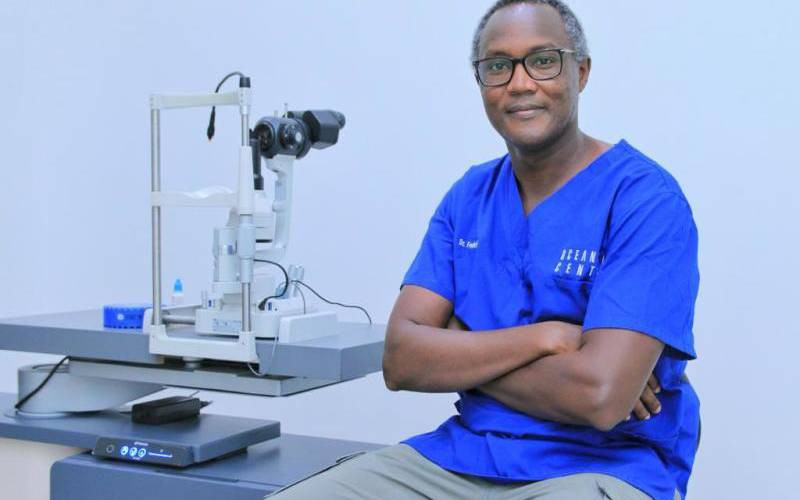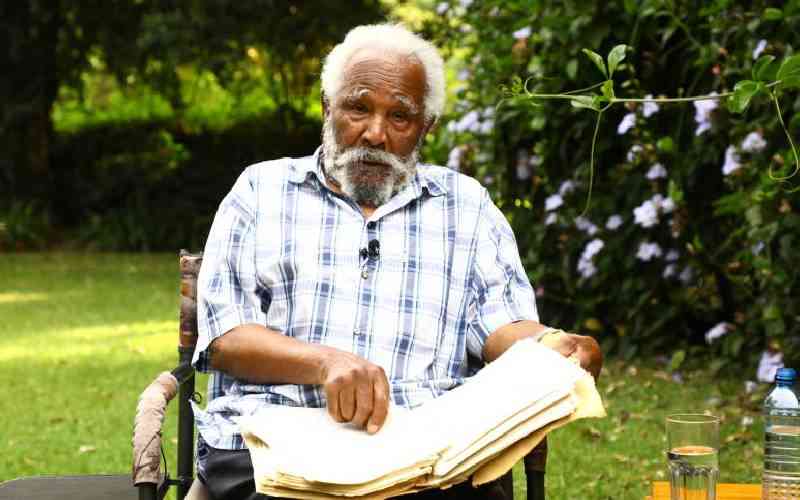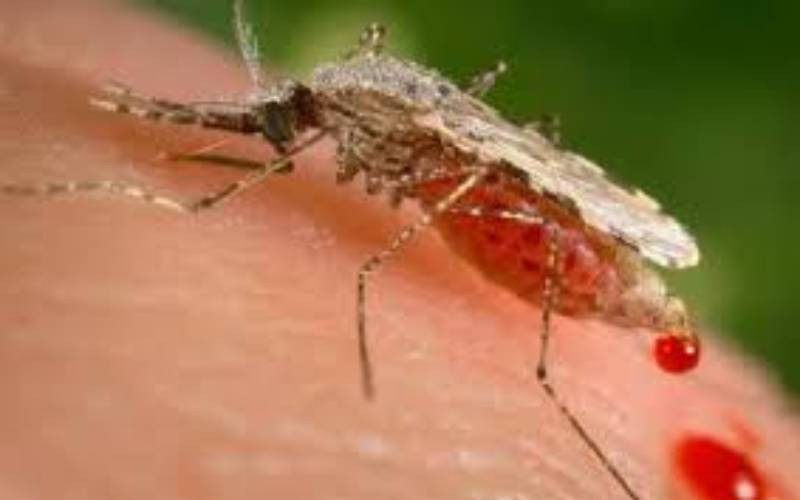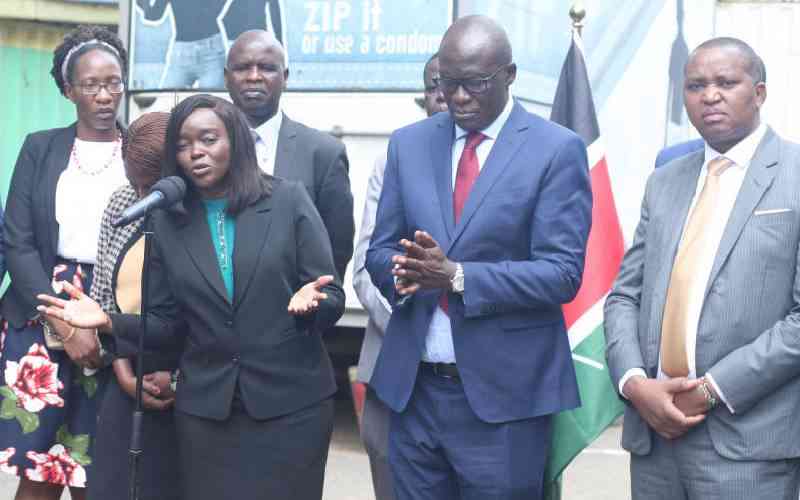
Dr Frederick Korir is an ophthalmologist specialising in corneal transplants.
His passion is restoring eyesight with wondrous joy coming from enabling people who were almost visually impaired to see again.
As a teenager, he was always fascinated by computers, IT and piloting, but going into medicine was greatly influenced by reading American neurosurgeon Ben Carson's book, Gifted Hands.
"It may sound cliche but the book was the closest I came to the medical world, a dimension of life I had never been exposed to," recalls Dr Korir.
This dream was reinforced while selecting careers in high school where his mentor was angry with him over his intentions to pursue computer science: "'What are you going to do in computer science? people like you do medicine,'" shouted the mentor "and he threw me out of the room."
Dr Korir grew up in a farm in Uasin Gishu and but was transferred to Nairobi while in Standard Four.
Life in Nairobi was a challenging transition, coming from a rural school. Classmates laughed when he made mistakes resulting in self-evaluation when he was 10 years old.
Back in the day, teachers asked pupils to exchange books for marking and that was when he realised he needed extra classes.
His aunt, a teacher, helped him in mathematics such that by Standard Five, he topped his class and that boosted his morale.
Campus life, at the University of Nairobi, was all about books, the lab and little social life.
"The first year was tough," says Dr Korir. "You had to learn new terms, all the body structures, dissecting the cadavers, but we survived through group discussions after classes and even on Sundays, and that's how I met my wife."
After medical school, an internship exposed him to all specialties in medicine, even though his interest was in obstetrics and gynaecology.
"But I soon realised I'm not functional at night and it was the time when most women delivered," he laughs. "I sat down and drew a chart of what I valued most in life and family was central to me of all the specialties, and ophthalmology was the most family-friendly as it gives you a balance between surgery and treating with medicine."
Ophthalmology, which he says he would choose any day if he were to choose his career again also blended well with his love for technology and eye care require lots of equipment.
There was also a gap in ophthalmology, with almost 130 ophthalmologists in Kenya which was lower than the recommended World Health Organisation (WHO) ratio.
During Second Year of his Master's degree in ophthalmology, he earned a cataract surgery training opportunity in India where he saw firsthand how far behind Kenya was in that field.
"Right now, we are almost at par with the rest of the world in terms of equipment," he says. "But government institutions are still struggling and need to invest in better equipment and integrate the eye services in their facilities."
Eye care is an expensive field due to the equipment as a simple eye machine costs Sh250,000 compared to other areas.
"Eye care can affect a person's economic status and eating a balanced diet especially fruits and vegetables gives you Vitamin A. You don't have to eat excess carrots" he says, adding that bright sunlight means one needs to wear ultraviolet sunglasses which prevent problems like growths from digital eye strain for those who use computers for long.
Computer use, he adds, leads to dry eyes and people should use the 20-20-20 rule: every 20 minutes take a 20 seconds-break and look at an object that is 20 feet away-which helps in redistributing tear film in the eye by refreshing tears.
Parents should discourage the use of screens on children less than two years to encourage brain development with playing outside as the better option.
"If you are diabetic, it is good to have your retina checked by an eye doctor and should not wait till its late because certain eye problems become difficult to treat," he says and advises those aged over 35 years to have their eye pressures checked especially if the family has a history of glaucoma and also those that have HIV and TB infections.
People over 40 years should consider having reading glasses focus the light at the back of the eye to avoid straining as the age most people develop reading problems.
As for corneal transplants, the biggest challenge in Kenya is the lack of organ donations and eye doctors rely on donations from other countries making them expensive due to shipping costs.
A cornea transplant helps those with keratoconus or people whose glasses cannot fix their eye problems as they are oval-shaped or cone-shaped instead of an even circle, or who have a scar in the cornea. Costs can oscillate between Sh250,000 and Sh400,000.
In his free time, Dr Korir loves watching movies with his family but none of his three daughters has shown interest in medicine.
"I don't blame them, but I try to expose them to different activities to see which one will interest them the most," he says.
Dr Korir also runs for fun and to keep fit, allowing him to sleep better, and meet new friends. He has done half and full marathons and draws a map of the towns where he runs to understand them better. He plans to slow down his private clinical practice and help the government set up an eye bank.
 The Standard Group Plc is a multi-media organization with investments in media platforms spanning newspaper print
operations, television, radio broadcasting, digital and online services. The Standard Group is recognized as a
leading multi-media house in Kenya with a key influence in matters of national and international interest.
The Standard Group Plc is a multi-media organization with investments in media platforms spanning newspaper print
operations, television, radio broadcasting, digital and online services. The Standard Group is recognized as a
leading multi-media house in Kenya with a key influence in matters of national and international interest.











